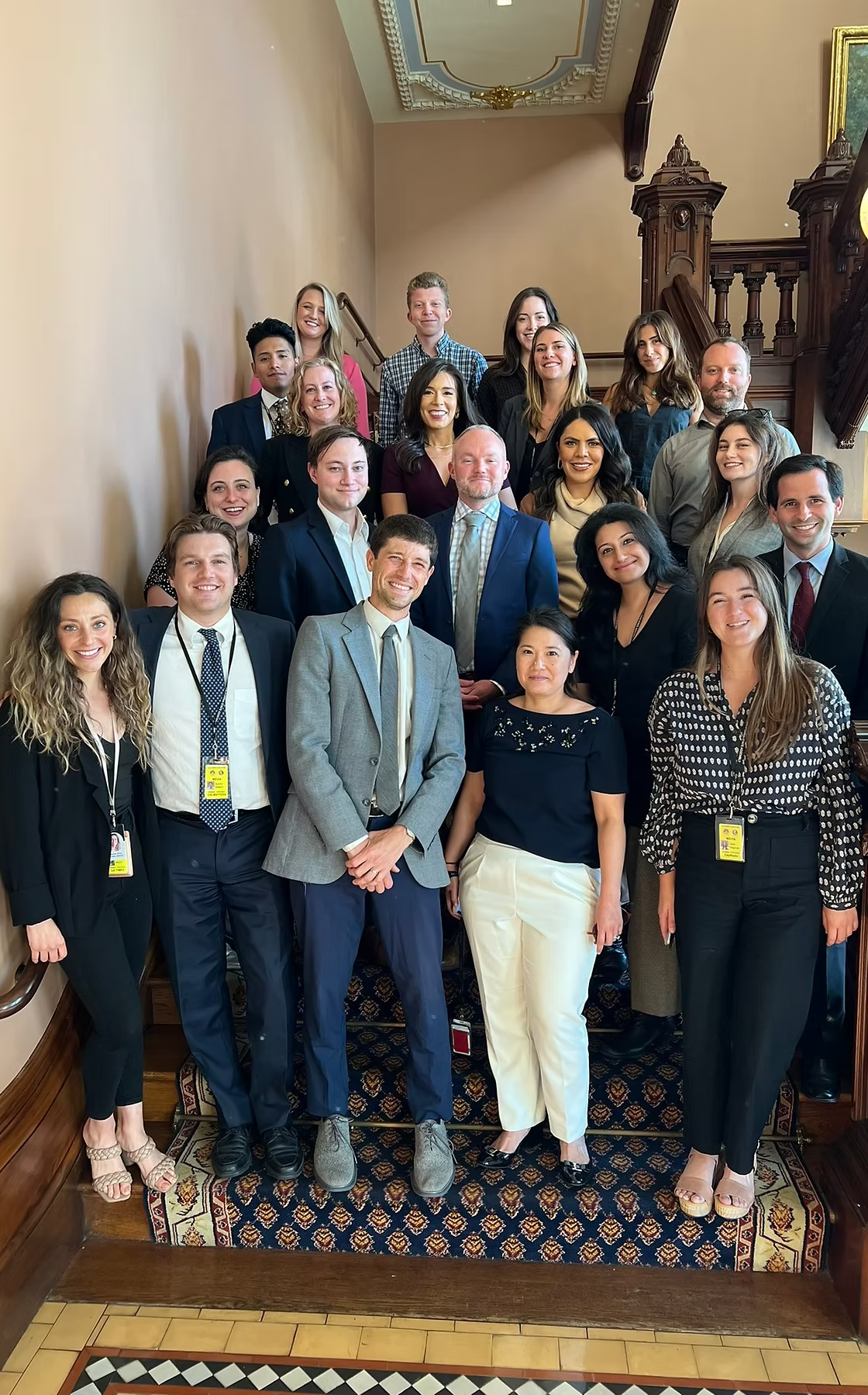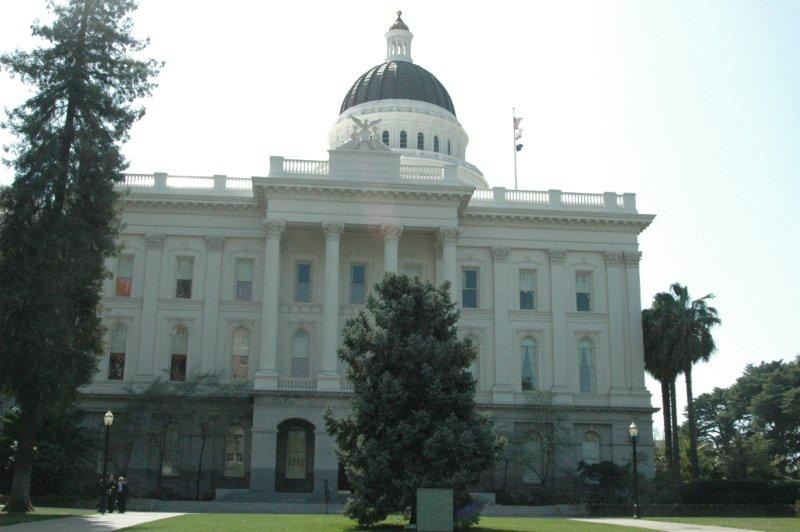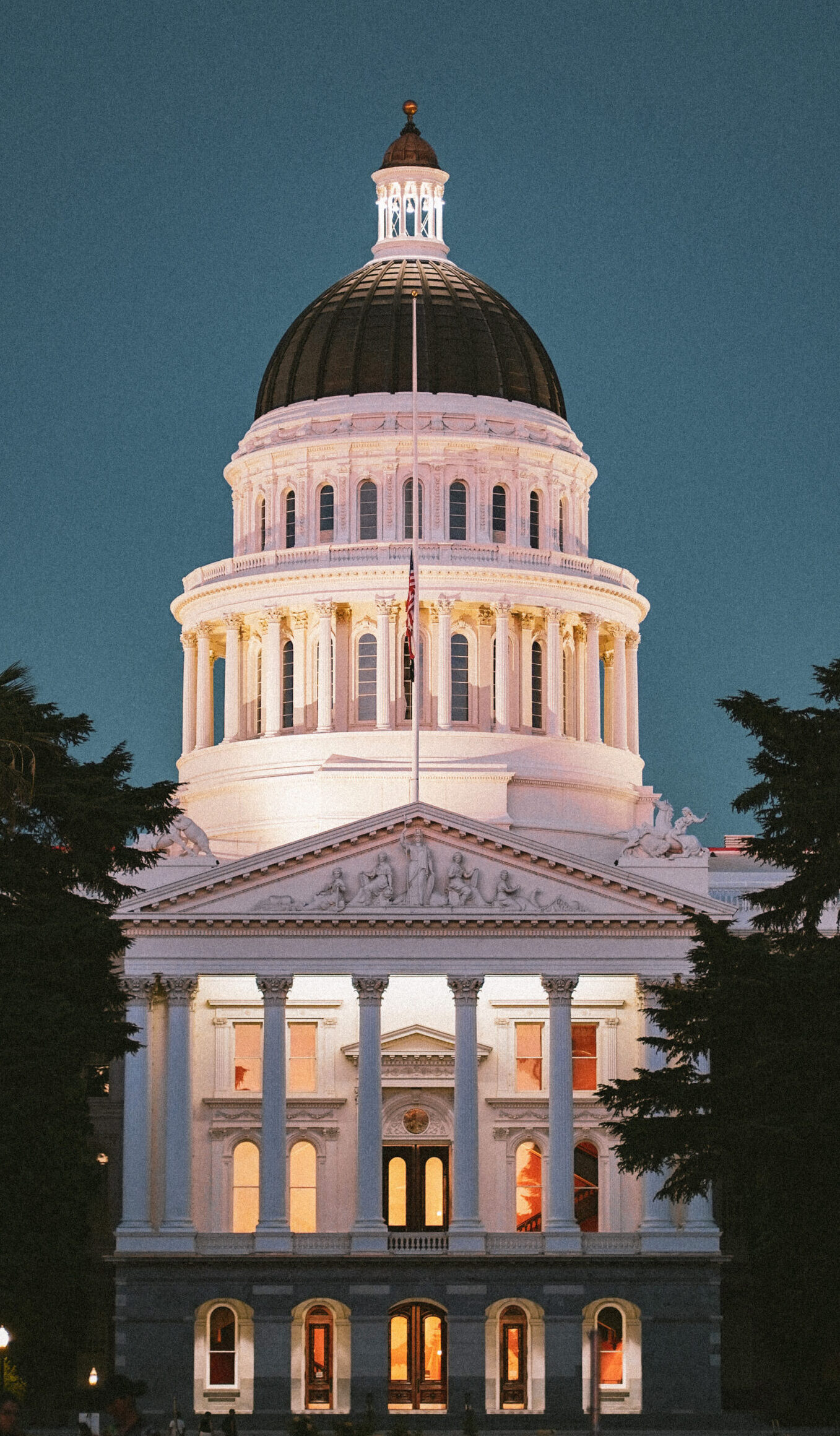Fighting for access to California policymakers.
Holding those in power accountable.
The mission of the Capitol Correspondents Association of California is to make it easier for news professionals who cover the state Capitol to do their jobs. The Association screens applications for news media credentials and sends its recommendations for accreditation to the Legislature and governor’s office. It also acts as an advocate for open meetings, news media access, freedom of information issues and the fair distribution of public information.
Apply for Accreditation

Members of CCAC
About CCAC
Covering the California Capitol for readers, listeners and viewers.
The Capitol Correspondents Association of California represents journalists credentialed to cover the Legislature. We work to increase access to elected officials, state agency leaders and others who make policy on behalf of millions of Californians.
An elected seven-member board represents the organization:
- Alexei Koseff (CalMatters)
- Ashley Zavala (KCRA)
- Rachel Bluth (Politico)
- Julie Watts (CBS News)
- Sophie Austin (AP)
- Hector Amezcua (The Sacramento Bee)
- Rich Ehisen (Capitol Weekly)
CCAC guidance for journalists covering the California Legislature and Newsom administration
Do not give a state agency or office questions in advance.
Journalism ethics requires us to maintain our objectivity, and by giving these questions in advance you would be providing the office or agency an opportunity to rehearse for a basic function of their job and take control of the messaging. Feel free to give the office a general description of the information you’re hoping to gather in your interview.
If a state agency or office claims other media outlets have done this in the past, you can refer them to the guidelines provided here. If an agency rejects an interview and sends you a statement instead, include both the rejection and the statement in your story.
Information provided without attribution is not acceptable, especially in cases where a state agency is making an announcement or providing general information to a broad range of reporters.
For example, when Gov. Newsom’s administration decided to announce when the COVID-19 state of emergency was ending, reporters on the teleconference were not allowed to attribute the announcement to Dr. Mark Ghaly, who was providing the information. Reporters objected. Obviously this guidance does not apply when journalists are working to confirm confidential information.
Attribution information should include a spokesperson’s full name and their agency. If an agency or office refuses to provide attribution information, point it out in your story.
Example:
“A spokesperson for the Department of Industrial Relations, who provided this information, refused to be identified.”
Please let CCAC know when a state agency or office is not helpful.
Communications offices should be responding to your inquiries and they should be providing you with information that can be attributed to someone. They also need to do this in a timely manner.
Glossary of terms:
- On the record: reportable, attributable to the source
- Off the record: not reportable
- On background: a way to provide or receive information that is not for direct attribution
- For planning purposes only: background information that is not ultimately reportable
- Embargoed: not reportable until a specified time
NOTE: Because sources may understand this terminology differently, it is often preferable to specifically ask before an interview how they are willing to be identified in attribution.
Access
Credentialed Media Workspace
Credential members of the CCAC are invited by the Legislature to use a temporary workspace in Room 440, on the fourth floor of the historic California State Capitol building.
The room is available from 9 a.m. to 5 p.m. during weekdays at the California State Capitol and when the Assembly and Senate floor are in session. Please contact Assembly Communications Director Nick Miller if you need access to the workspace or have any questions via cell phone: (916) 600-5622 or email at Nick.Miller@asm.ca.gov.
Keys can be accessed in the Speaker’s office (room 219) in the historic Capitol or by calling or texting Cynthia Moreno. You will need to use the sign in/sign out daily log, and deposit your ID to check out a key, and you must bring back your key when finished in the workspace to have your ID returned. You will be charged a replacement fee for a lost key. If you access the room but did not check out a key, please add your name to the daily log.
Press has the following floor access in the Senate:
- Credentialed press can access either side of the back of the Senate chamber (behind the pillars) during regular proceedings.
- In addition to the two dedicated press desks, three stadium seats are also reserved for press on the left side of the chamber, as you enter.
- Portable desks that can be hung on the back of the seats in the rear of the Chamber are available upon request from any of the Sergeants.
- Members of the press can take still photography or video from the back of the Senate Chamber so long as they do so safely and don’t create disruptions.
- Reporters may pass a note to request to speak to a Senator through the Sergeants. Quiet, off-camera interviews may take place in the back of the Chamber during session, or outside the Chamber in the corridor outside the wooden doors.
- Until the annex construction is complete, reporters can access the staircase landing from the second floor to the third floor for on-camera interviews while the Senate is conducting business in the Senate Chamber.
- Following session, on-camera interviews can also take place outside the Chamber in the corridor outside the wooden doors.

